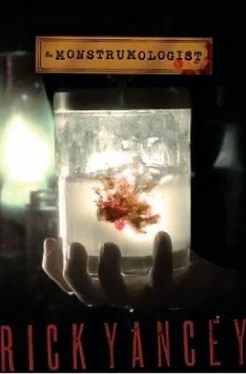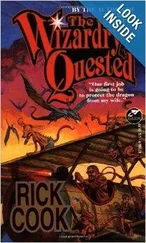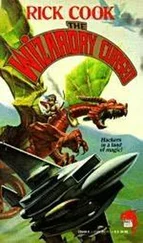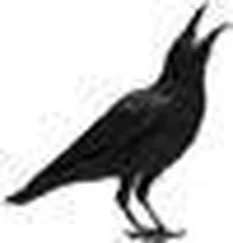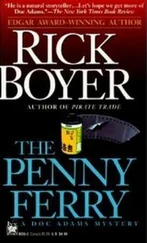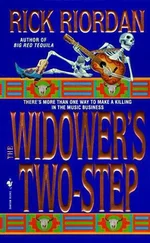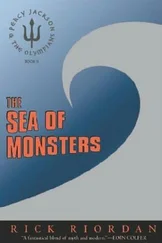Wait. Wait, Will Henry. Let her get close. You must let her get close! Closer. Closer. Ten feet. Five feet. Three. Two…
And when the beast was close enough that I could see my own reflection in its black, soulless orb, when all the world was her rotten stench and her snapping teeth and her slick, glistening, pallid skin, when I reached that instant wherein a hairsbreadth separates life from death, I smashed the muzzle against her groin and pulled the trigger.
THIRTEEN. “You Bear His Burden”
On a May morning of that same year, a month to the day since the old grave-robber’s midnight visit that began the singular curiosity of the Anthropophagi affair, as the doctor had taken to calling it, I was bounding up the stairs in answer to his incessant summonses, ignored for too long (I did not appear upon the first shout, in other words) and now shaking the house at 425 Harrington Lane to its foundations.
“Will Henry! Will Henreeeee!”
I found him in the lavatory, straight razor in hand, his half-shaven chin dotted in styptic, the water of his bowl a not unpleasant shade of pink.
“What are you doing?” he demanded upon my breathless entrance.
“You called me, sir.”
“No, Will Henry. What were you doing before I called you, and why did it take you so long to stop doing whatever it was that forbade you from coming in the first place?”
“I was cooking breakfast, sir.”
“Breakfast! What time is it?”
“Nearly nine o’clock, sir.”
“I detest shaving.” He held out the razor and sat upon the commode while I finished up his chin. “Is it finished?” he asked.
“There’s still the neck,” I answered.
“Not the shave, Will Henry. Breakfast.”
“Oh. No, sir, it isn’t.”
“No? Why not?”
“I had to stop.”
“What happened?”
“You called me, sir.”
“Are you being cheeky, Will Henry?”
“I don’t try to be.”
He grunted. I wiped the blade clean. His eyes followed my hand. “How is the arm, Will Henry? I’ve not taken a look at it lately.”
“Much better, sir. I noticed last night the scars seem to glow in the dark.”
“That is an optical illusion.”
“Yes, sir. That was my conclusion too.”
“What is for breakfast?”
“Potato pancakes and sausage.”
He grimaced. The razor raked down his throat. There was a rhythm to it: scrape, scrape, wipe… scrape, scrape, wipe. His eyes never left my face.
“Any mail today, Will Henry?”
“No, sir.”
“And no mail yesterday. That is unusual.”
“Yesterday was Sunday, sir, and the mail doesn’t run till ten.”
“Sunday! Are you sure of that?”
I nodded. Scrape, scrape, wipe.
“I don’t suppose you remembered to pick up a scone or two at the market.”
“I did, sir.”
He sighed with relief. “Good. I think I shall have one of those.”
“You can’t, sir.”
“And why can’t I? Now you are being cheeky, Will Henry. I am the master of this house; I suppose I can have anything I please.”
“You can’t because you ate the last one last night.”
“I did?” He seemed genuinely surprised. “Really? I don’t remember that. Are you certain?”
I told him I was, and wiped the lathery remnants from his face with a warm towel. He looked in the mirror and gave his reflection a cursory glance.
“A pity,” he mused. “A pity squared: first that I have none to eat and second that I can’t remember eating one to begin with! Where is my shirt, Will Henry?”
“I think I saw it on your wardrobe, sir.”
I trailed behind him into the bedroom. As he buttoned his shirt, I said, “I could run down there now, sir.”
“Run down where?”
“To the market, for some scones.”
He waved his hand, absently dismissal. “Oh, I’m not really hungry.”
“You should eat something, though.”
He sighed. “Must we plow that same tiresome row again, Will Henry? What are you doing now?”
“Nothing, sir.”
He started to say something, and then apparently changed his mind. “Anything in the papers today?”
I shook my head. One of my duties was to scan the dailies for tidbits that might interest him. Of late there seemed to be only one potentially hazardous matter that concerned him. “Nothing, sir.”
“Remarkable,” he said. “Not even in the Globe?”
I shook my head again. It had been more than a fortnight since he had reported the murder to the authorities, and to date only a brief notice and an obituary had appeared in Dedham ’s weekly. The police, it appeared, were not taking seriously the doctor’s allegations of foul play.
“Damn him,” the monstrumologist muttered. I did not know if he referred to Dr. J. F. Starr, the victim, or to Dr. John Kearns, his killer.

Warthrop had promised justice for Hezekiah Varner and those other poor unfortunates suffering behind the heavy padlocked doors of Motley Hill. That promise was kept, though doubtlessly not in the way he had anticipated. Indeed, I do not think that promise was foremost in his mind the morning we arrived in Dedham, three days after the felling of the mother Anthropophagus. It wasn’t justice he sought; it was answers. Not equity, but exorcism.
“Charming,” Kearns commented upon our arrival at the decrepit sanatorium. He had insisted, before taking his leave of New England, on accompanying us. He, too, wanted to verify Warthrop’s revised theory of the case-or so he said. “I was committed once. Have I ever told you, Pellinore? Oh, yes, for three long years before I managed to effect my escape. I was all of seventeen. The entire abysmal episode was my dear mother’s doing, God rest her angelic soul.” He looked down at me and smiled. “She is catalogued with your employer’s Society, under M for ‘Monsters, Maternal.’ Four days after my return she fell down the stairs and broke her neck.”
“Why did she commit you?” I asked.
“I was precocious.”
The erstwhile black-clad Mrs. Bratton showed little surprise at our unexpected appearance upon the sagging stoop. The doctor handed her his card and twenty dollars in gold, and presently we were escorted to the little parlor with its odiferous atmosphere and tired trappings, where the ancient alienist huddled in his dressing gown beneath a threadbare blanket, shivering despite the robust fire dancing in the hearth.
There were few preliminary pleasantries. With a gleam in his charcoal eyes, Kearns introduced himself as Dr. John J.J. Schmidt of Whitechapel.
“And what is your area of expertise, Doctor?” inquired the old man.
“Anatomy,” answered Kearns.
Warthrop deposited two more coins upon the table by Starr’s elbow and immediately inaugurated the interrogation.
“Who were Slidell and Mason?” he asked.
“Madmen,” murmured Starr.
“Is that a formal diagnosis?” wondered Kearns.
“No, but I assure you, Dr. Schmidt, madness is my area of expertise.”
“They were agents of the Confederacy?” pressed the doctor.
“They never claimed to be, Warthrop, at least not to me, but I met them only once, and that briefly. Certainly they were fanatical over ‘the cause,’ as they called it, the most dangerous kind of fanatics too: fanatics with fabulous sums at their disposal.”
“My father introduced you,” said the doctor. It was not a question.
The old man nodded, and even that small gesture propelled him into a coughing jag that lasted at least two minutes, at the end of which he produced the same disgusting scrap of cloth and spat into it. Beside me Kearns chuckled, as if something about the ritual delighted him.
Читать дальше
